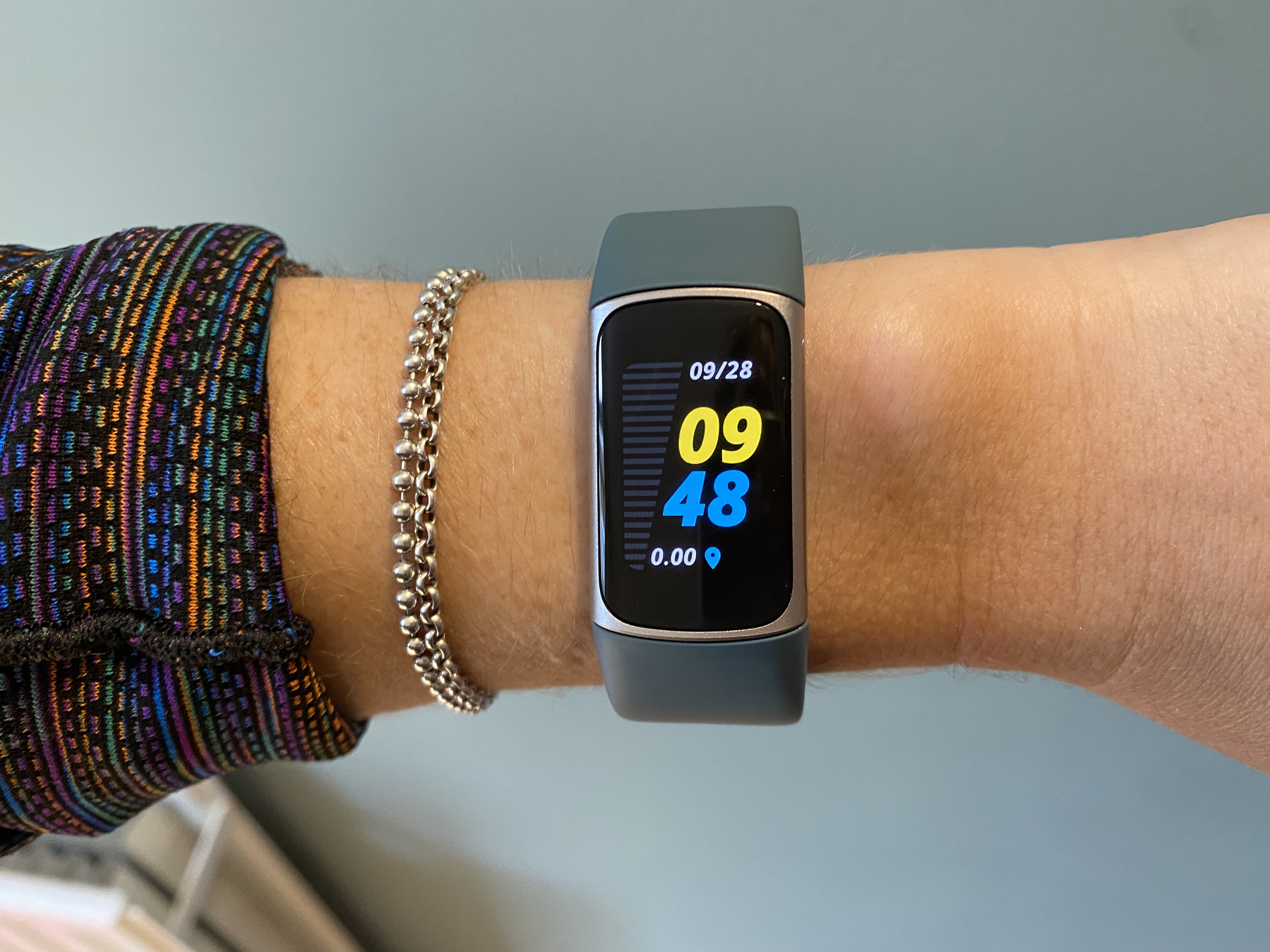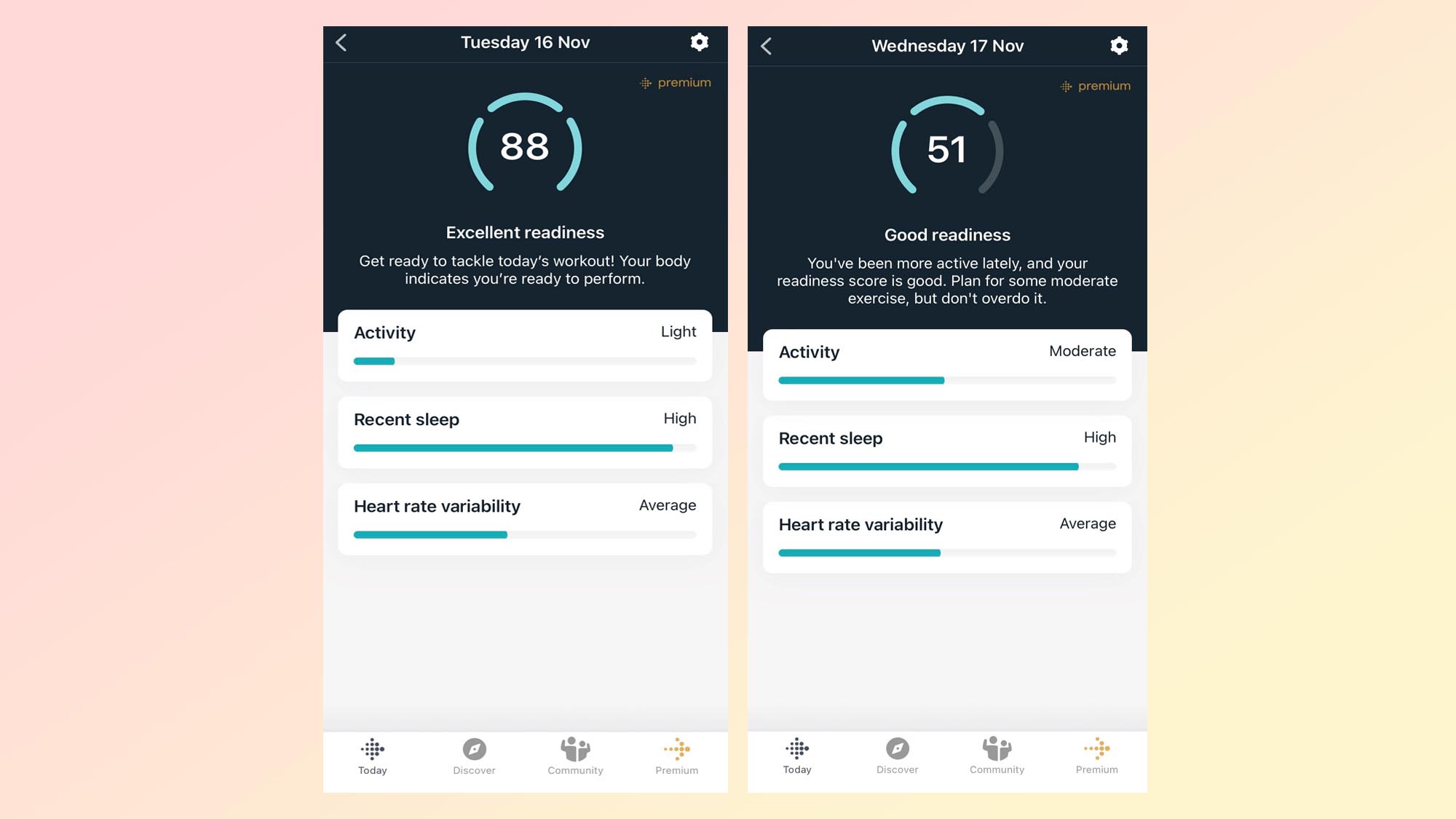Fitbit’s Daily Readiness Score is a game changer — here's how it works
It’s time we all took a look at our training plans.

I was once told by a physio that the majority of sporting injuries, at least the ones he treated, were down to people overtraining. It makes sense as I’ve done it myself — felt a little sluggish on a Sunday night after a weekend of eating and drinking far too much and gone all-guns-blazing into a new training plan, only to pick up a niggle a few weeks later.
Earlier this month, Fitbit rolled out their long-awaited Daily Readiness Score, a feature for Premium subscribers that looks at the quality of your sleep, how hard you worked out the day before, and your heart rate variability (HRV) to assess how ready you are to push yourself that day.
I’ve been trying it for a couple of weeks, and although the brand definitely isn’t the first to try this, I’m impressed. Removing the ego and listening to my body is one of the hardest lessons I’ve had to learn during my own fitness journey, so I’m totally here for brands like Fitbit trying to help. (On the lookout for a new Fitbit? We've hand-picked the best Fitbit's to buy in 2021 here).

Fitbit Daily Readiness Score: how does it work?
The Daily Readiness Score is a number based on your sleep, your activity and your HRV. Each morning, your Fitbit app gives you a score with details on what impacted it, and suggested workouts for the day. Fitbit says this score is "built on research that proves taking time to recover can generate stronger results in the long run versus pushing yourself all the time." The higher the score, the more ready you are for a harder training session, like a speed workout, or an intense gym session. The lower the score, the more recovery your body needs, meaning you should opt for something more gentle, like a walk or a yoga class.
Fitbit also offers you workout suggestions based on your score. Premium members already have access to the brand’s library of audio and video workouts, and the Fitbit app will give you suggested workouts based on your Daily Readiness Score.
Fitbit Daily Readiness Score: verdict
I’ve been using the Fitbit Daily Readiness Score for the past few weeks with my Fitbit Charge 5 and have been impressed with how well it seems to read my recovery. I woke up one morning to find I had a Daily Readiness Score of 88, with my Fitbit reading, "Get ready to tackle today’s workout! Your body indicates you’re ready to perform," so I set out for a 10-mile tempo run, and I did indeed feel great. The next day I woke up to a score of 51, with my Fitbit saying “You’ve been more active lately, and your readiness score is good. Plan for some moderate exercise, but don’t overdo it," so I knew I’d slept well enough to head to the gym for a light strength session. While two weeks isn’t long enough to make a conclusion on long-term training results, I felt the Fitbit’s scores did reflect how I was feeling in myself after my workouts.
Of course, Fitbit is not the first brand to look at recovery — brands like Whoop and Oura have similar features on their tracking devices, and I often look at the recovery data on my Garmin when marathon training. However, Fitbit devices are far more affordable and versatile than some Garmin watches, and I feel like the difference lies in the trackers themselves. Unlike my Whoop 4.0 band, I can use my Fitbit Charge 5 to get live feedback on a run thanks to the screen, or get Whatsapp notifications when out and about, as well as tracking recovery data.
Sign up to get the BEST of Tom's Guide direct to your inbox.
Get instant access to breaking news, the hottest reviews, great deals and helpful tips.
Compared to the likes of Apple and Samsung, this is a definite stand-out feature for the brand and a move that shows Fitbit is moving towards a more holistic view of health. For beginners, features like the Daily Readiness Score are invaluable and can help embed healthy fitness routines, that look at the body as a whole, not just the steps taken or calories burnt.
The Daily Readiness Score is available now for Premium members who are using the Fitbit Sense, Versa 3, Versa 2, Charge 5, Luxe and Inspire 2 devices. You will need to wear your Fitbit for at least four days before you get your first score, and can expect more personalized results after using the feature for 14 days.

Jane McGuire is Tom's Guide's Fitness editor, which means she looks after everything fitness related - from running gear to yoga mats. An avid runner, Jane has tested and reviewed fitness products for the past five years, so knows what to look for when finding a good running watch or a pair of shorts with pockets big enough for your smartphone. When she's not pounding the pavements, you'll find Jane striding round the Surrey Hills, taking far too many photos of her puppy.
